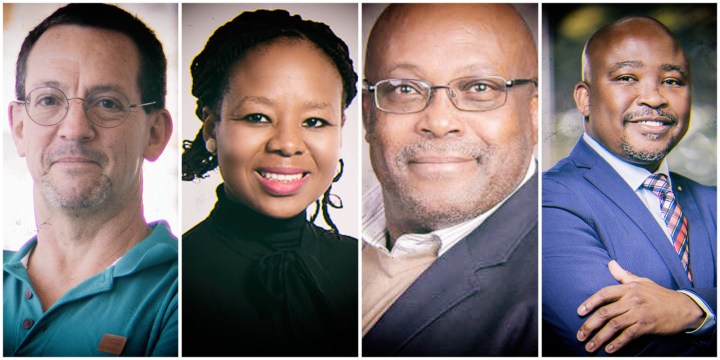WEBINAR
More collaboration needed to combat corruption in private healthcare sector

More collaboration is needed among those in the private healthcare sector to effectively deal with corruption, says Katlego Mothudi, the Board of Healthcare Funders’ managing director. Mothudi said that there also needed to be adequate consequence management when it comes to those implicated in corruption in the sector.
At a webinar on Sunday on corruption in the private healthcare sector, Katlego Mothudi, the Board of Healthcare Funders’ managing director, said that the sector needed to collaborate more in order to tackle corruption.
“[The sector] should be sharing data and sharing strategies so that fraudsters have little room to move around. We also need partnerships with law enforcement entities because the industry can’t be the judge and the jury [when it deals with fraud and corruption],” said Mothudi, who’s worked in the healthcare sector for 25 years.
The Council for Medical Schemes estimates that the total cost of fraud in the South African private healthcare system amounts to about R22-billion a year.
Mothudi said that the majority of the cases of corruption involved false claims. “That’s when healthcare professionals claim for services not rendered or claim for incorrect services.”
The Council for Medical Schemes said that fraud, abuse or waste accounts for about 15% of the R160-billion in claims that medical aids pay out annually.
In 2019 President Cyril Ramaphosa launched the Health Sector Anti-Corruption Forum where government and civil society would work together in preventing, detecting and prosecuting fraud and corruption in the health sector.
In 2019 John Jeffery, the Deputy Minister of Justice and Constitutional Development, said that work done by the Special Investigating Unit had led to the arrest of an attorney in the Eastern Cape relating to fraudulent medico-legal claims estimated to total more than R100-million.
“Other times practitioners change the dates of when the services were rendered. The practitioner will be claiming for services rendered but misrepresenting the facts,” said Mothudi.
A Corruption Watch report on corruption in SA’s public hospitals found that the most common form of corruption was employment corruption (39%), followed by procurement corruption (22%), and the misappropriation of resources (16%).
“In the area of employment, this manifests as absenteeism, allegations of nepotism and favouritism, and the appointment of unsuitable candidates, with no accountability for decisions around employment,” reads the report.
Mark Heywood, Maverick Citizen’s editor, who was facilitating the discussion, said that “we talk a lot as though corruption is limited to the public sector, but the private healthcare sector is just as vulnerable to fraud and corruption”.
Mapato Ramokgopa, from the Competition Commission, said that “the power lies with the doctor to diagnose and offer treatment. Some [doctors] recommend services that are not necessary, some recommend care at a higher amount than needed.”
In the Competition Commission’s Healthcare Market Inquiry report which was released in 2018, the commission found that “the South African private healthcare market… is characterised by high and rising costs of healthcare and medical scheme cover and significant overutilization without stakeholders having been able to demonstrate associated improvements in health outcomes”.
While healthcare practitioners recommending treatment that is unnecessary or at a higher amount than is necessary isn’t illegal, Mothudi said that the Board of Healthcare Funders would label this as waste and abuse which is when “someone is veering off from appropriate processes. It’s not necessarily corruption, hence we label it as wastage”.
Most healthcare professionals aren’t corrupt – “there are a few bad apples but the impact of their criminal activities affects our ability to provide healthcare”, said Mothudi.
Mothudi said that what’s lacking right now is consequence management. The cases where fraudsters are being held accountable “are too few and far between”.
There was a case of a doctor from the Eastern Cape who was writing fraudulent sick notes, and he was exposed when employers started complaining about him.
“We definitely are making some progress when it comes to holding fraudsters accountable,” said Mothudi. DM




















 Become an Insider
Become an Insider
Comments - Please login in order to comment.